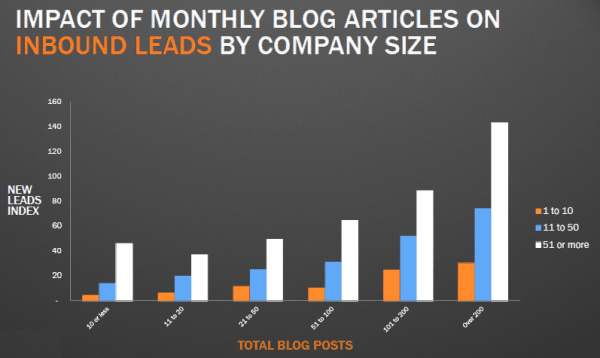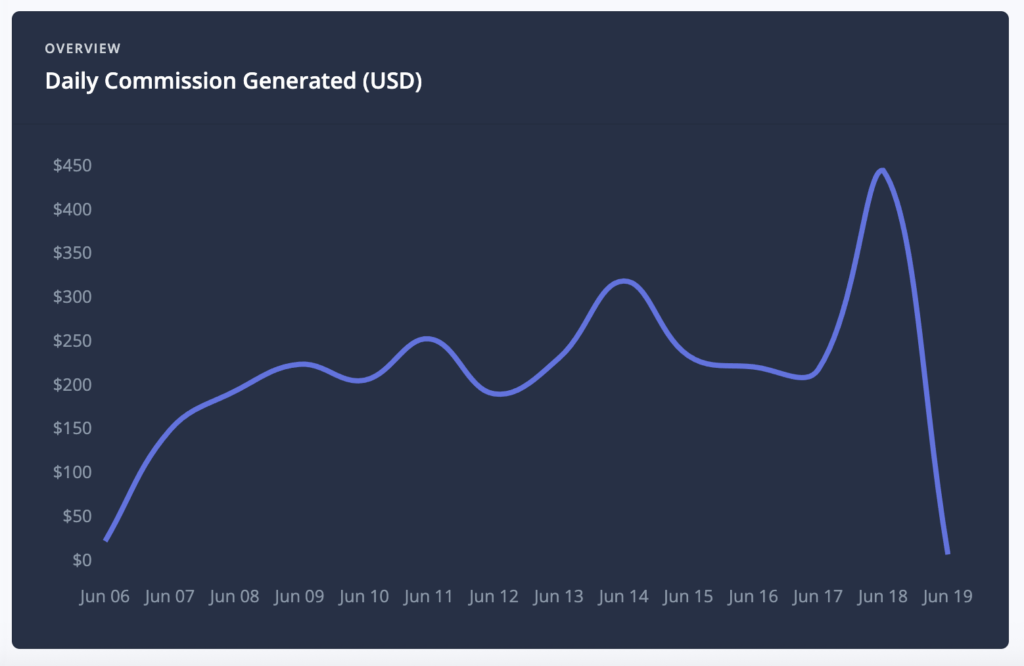
Hey, I’m on a roll here at Fat Stacks. Several posts published in a very short time and I’m LOVIN’ it. But maybe, this isn’t good. Anyway, blogging frequency is what I want to discuss here.
I have a growing in-house team handling my niche sites so I get more time rifling out content here.
I’ve been brainstorming topics I think you’ll like. Basically coming up with stuff related to being a niche publisher.
While planning a slew of topics chomping at the bit to bang ’em out, I received this email from Derek Halpern of Social Triggers fame in which he says the following:
“Stop Creating Endless Content – PROMOTE IT.”
People mistakenly believe they need to create an endless amount of content to build their email list.
Not anymore.
When I started Social Triggers, I grew my subscribers from scratch to 27,778 subscribers. The best part? I updated my blog just 2.5 times each month.
And that’s because I followed this simple idea. Create less. Promote more.
Now, this doesn’t mean you create “bad” content. It means you create a great piece of content, and then you promote the heck out of it. GET IT INTO THE HANDS OF PEOPLE!
Derek HalpernRobbie Richards
This email from Derek is on the heels of spending some time over at Robbie Richards site where he’s had success writing “epic” content and then spending a lot of time promoting it.
Brian Dean
And then of course there’s Brian Dean who has had insane success with less content, better content, promote content; aka Skyscraper Technique. Brian does a great job publishing case studies showcasing how his method works really well. He too embraces this content approach having published I think fewer than 40 blog posts yet he gets an insane amount of traffic and has positioned himself as an SEO expert.
Jon Morrow
Jon Morrow of Smart Blogger takes the fewer blog posts and more promotion approach as well (and teaches it too). Jon is a killer writer and he’s all about promotion. This guy makes a fortune teaching writing, so clearly his approach works for him. His traffic levels are magnificent.
Neil Patel
Neil falls into the “both” camp. That guy is a content machine. I don’t know Neil and he doesn’t know me, so I have no idea if he actually writes everything he publishes. Regardless, the quality and frequency on Quicksprout and NeilPatel.com (especially considering them together) is simply insanely impressive. His strategy clearly works because his traffic levels are amazing for B2B sites.
All of the above folks undoubtedly enjoy success by publishing less and promoting more. I enjoy all of their work and have learned a great deal reading their work.
Despite all of their success, I can’t help but asking the following:
Can blogging more often (i.e. Chronic Blogging) with less robust content succeed?
In addition to the folks mentioned above, I’m also a fan of Dan Norris who is a proponent of producing loads of content frequently. Dan has built up several successful businesses, including WPCurve (which I use extensively). He claims a big part of his success is producing a ton of content that in a round-about way promotes his services/products.
FYI, Dan offers a free course on content marketing. It’s quite good and worth getting.
Dan is a chronic blogger producing a lot of great content very frequently. This works for him.
Other examples where frequent, shorter blog posts have worked well:
1. Hubspot Marketing Stats
Check out these Hubspot marketing statistics about blogging frequently. Overall they support blogging more frequently (in the business space). This is counter to the examples set out above. I’m not saying either way is wrong. On the contrary, I think if each approach is well done, both can work.
Here’s a chart from Hubspot:

2. Be a Better Blogger Case Study
This Be a Better Blogger case study is very interesting. Blogging more often (5 times per week) increased social sharing and traffic but dramatically decreased Kevin J. Duncan’s enjoyment.
Normally, he published 1 long post per week. In week 4 he published 5 shorter blog posts (609 to 1,262 words).
Results:
During the week he published 5 shorter blog posts he enjoyed:
- Traffic: 46% increase over previous 3-week average
- Social shares: 84% increase over previous 3-week average
- Comments: 119% increase over previous 3-week average
Kevin’s takeaway: If traffic is your primary goal, frequent publishing can be effective if you already have a steady base of readers.
I think also in the long run it’s impossible to say whether 5 shorter posts would perform better with organic search traffic than 1 epic post per week. I suspect it could be a wash in the long run… but maybe not.
Finally, Kevin reports he didn’t enjoy that frequently and instead preferred publishing higher quality content less often (i.e. once per week).
IMPORTANT CAVEAT
By shorter blog posts, I’m not talking about 250 to 300 word posts. I’m talking about fairly robust content, just not the stuff that’s seemingly become the norm … you know the 5,000+ word mega posts. Instead, I’m talking about 750 to 1,800 word posts that are well written and still achieve a pointed goal or two.
So where does that leave us as bloggers and website publishers?
- Should we focus on publishing 1 or 2 posts per month that are so awesome McGraw Hill wants to sign us up as authors followed by a full month of promotion?
- Or, should we bang out post after post spoon feeding it to our existing audience (email/social) and hoping against all hope the mighty Google bestows some top rankings for a few of them?
- Or, is there a middle ground?
Before I tell you what I think is best, in my view there are pros to each approach.
Pros of posting less often, but when you do it’s super duper in-depth content
1. Attract more links?
This is the goal I think. It’s those links that will rank for the targeted keywords which will provide that sweet, sweet passive search income we all seek and love.
2. More social proof
Dries Cronje wrote that if you publish more often, social proof takes a hit. This is not something I considered. I think though, it really depends on the niche. Perhaps definitely with business-oriented niches.
3. Don’t have to write as much
While you’ll write a lot for a single post, you don’t have write as frequently. In fact you can’t if you plan to promote extensively. There are only so many hours in a day. The point is posting less frequently which results in having to write fewer words overall.
4. Rank for better keywords?
Assuming you get some great links from other websites, you can, in theory, target and rank for higher search volume keywords (or more valuable keywords).
5. Easier to promote and attract more direct traffic?
I wouldn’t assume longer content will necessarily get more exposure. Longer doesn’t mean better. However, assuming it’s awesome; the best on the topic, promoting it and getting exposure should be more successful than a shorter, less in-depth piece of content. If that’s the case, you can get more direct traffic and those links will help rank it higher in the SERPs.
6. Focus on promotion
If you like reaching out to other bloggers and influencers, then obviously writing less and promoting more is something you should do. Never, ever undermine doing what you enjoy if it generates your sought-after results.
7. Personal satisfaction
When you go all out and put blood, sweat and tears into a piece of content, you can feel great about it knowing people will enjoy it and/or learn from it. It’s a good feeling knowing you’ve done your job well.
Pros of Chronic Blogging (i.e. frequent blog posts)
1. Less can be more
I don’t mean less posts. I mean shorter posts.
As a reader, I don’t always want to read 8,000 words on a topic. In fact, often I prefer 1,200 words or less to get the gist of it. I’ll figure it out from there. I don’t think I’m alone here.
For example, one of my favorite websites is BusinessInsider.com. They aren’t the most in-depth in their coverage, but they publish a lot of business/tech related content every day. I wouldn’t read that website if each piece of content was some behemoth I had to wade through. I like the fact I can read an article in a minute or two and get a nice update on whatever the article was about.
Another example: I’m an email subscriber of an attorney marketing email newsletter. He sends out a shortish email every day without fail. Each email makes a point and it has a personal flair. I no longer practice law and his email isn’t very relevant to what I do marketing my law firm clients; however, I enjoy it nevertheless and read them each day.
Use your judgement. Write as much as is needed to cover the topic.
On that note, I’m very excited because I just signed up for MarketMuse which helps analyze content. I can’t wait to deploy this on my sites and see where and how I can improve my content. Of course I will keep you posted on these results. I think, at least I hope, Marketmuse will be a game changer for my niche sites.
2. More content for existing audience
If you have an email newsletter and/or social media following, you can engage them more often with more content. This can help sales/revenue. On the flip side, you may annoy your audience if you sledgehammer them with just “okay” content daily or every other day. You could even annoy them if you publish awesome content every day. The thing is each audience is unique and you need to figure out the sweet spot with promotion frequency.
Tip: If you publish a lot of content but don’t want to email your audience every day, just send one email per week with links to all your recent posts. Your audience will especially appreciate it if they’re not keen on daily emails.
For some sites, especially those dependent on social media traffic where the traffic cycle is short, you’ll need to publish frequently.
3. Target more keywords?
This is a contentious point. Some claim you can easily target a lot of keywords in long content that attracts plenty of links. On the flip side, more posts (assuming they’re decent) can directly target more keywords if you follow the focus on one keyword per post.
I think both approaches work. Let’s face it, if you attract 200 powerhouse links to an epic piece of content, you’re going to rank for a lot of long tail keywords.
On the flip side, if you publish 10 posts, each targeting long tail keywords with little competition and the content is good (i.e. covers the topic well), you can rank those fairly easy too.
4. Enjoyment factor
If you’re like me, you like publishing shorter pieces of content more frequently. That’s what I enjoy and so, for the most part, it’s what I do.
On the flip side, your audience may enjoy reading your work daily or several times per week, even if the content is not so involved. If this is the case, by all means provide what your audience likes.
5. More traffic?
Above I showed you examples from other bloggers on both sides of the fence. The “blogging once in a while with a focus on promotion” apporach works really well for some people. And then there are statistics and examples where blogging more often, even if less robust content, can improve traffic.
The Niche and Necessity Factors
The Niche factor
Let’s face it, some bloggers who blog about “how to blog” only talk about what works for publishing a “how to blog” blog. Is that confusing or what? The point is, “how to blog” or “IM” blogs cater to a business audience… often aspiring bloggers.
And it’s content for aspiring bloggers that is usually long, data-filled, etc. Okay, other niches benefit with epic content as well, but not all niches.
Other niches that tend to do well with mega content include health, fitness, self-help… usually problem-solving niches.
However, problem solving niches are not the only niches out there.
Can you image what would happen to traffic and revenue if Huffingtonpost, Forbes, BusinessInsider, Yahoo News, etc. all decided to write one epic post per week?
Their sites would be toast in a month.
My point isn’t to criticize the proponents of publishing only epic content once in a while. That works in certain niches and it works very, very well. My aim here is to suggest you need to cater to your niche and your audience.
One size does NOT fit all!
How often you post and the scope of your content really depends on your niche. In many niches, the more the merrier works really well. Just ask the seller of ViralNova (who never has to work again thanks to publishing snippets of text or embedding videos from YouTube combined with a genius headline writing ability) or Buzzfeed etc.
Therefore, when figuring out how often to blog, it’s imperative that you consider many variables. The best thing you can do is try different things and focus on what works best.
The Necessity Factor
Another consideration is how much content it takes to actually cover the topic. Sometimes it takes 8,000 words or more. Other times 700 words or even fewer will do.
I agree that in business-oriented / problem solving niches, the topics warrant longer content. However, in many other niches, there are so many topics that can be adequately covered with less content.
Instead, there may be far more topics to cover which requires more frequent publishing.
At the end of the day, what’s best?
I think by now you probably know I’m going to say it really depends on the niche and what you prefer doing.
Overall, I’d say you can deploy both methods to some degree in all niches. In some niches you may publish more shorter content but once in a while do something epic. In other niches you may only publish epic posts once in a while.
In fact, I think Neil Patel made a really good point in that once you have an audience and traffic and established cornerstone content, ramping up posting frequency can be a good strategy.
My approach with Fat Stacks
I publish decent content when I have something to say. I admit my content on this blog isn’t the very best it could be. I’m a 80/20 guy to the core. I publish at a 80% is good enough level for the most part.
Some weeks I have 4 posts worth of content to publish. Other weeks I’m silent. The reason for this is I have other niche sites and most of what I publish here is based on what I’m doing with other niche sites. I’m not merely sharing here what works with Fat Stacks.
You see, I’m not much into promotion, networking, reaching out, etc. Yes, failing to promote costs me a lot of traffic and money. But I don’t like doing it. Fat Stacks is not my main business. I operate on an “attraction rather than promotion” basis. Maybe that’s not the smartest approach, but so far it’s worked out pretty well.
What I enjoy is writing briefer posts and publishing more frequently. That’s my style. That’s what I do more or less on most of my websites.
Once in a while I get inspired on a topic and go nuts. That said, I still don’t do much promotion. I just can’t seem to do it.
As an aside, one failing of mine is not dressing up my content and making it all pretty like so many other bloggers do (Authority Hacker produces gorgeous content). I hate formatting and the thought of tinkering with formatting tools makes writing an ugly chore.
Also, the thought of always having to publish some epic, 8,000 word article is simply too daunting. I really enjoy rifling out half-decent posts that are 500 to 2,000 words that make a few points or teach a technique or two. I think they’re helpful. Most importantly, I enjoy it.
That said, once in a while I publish long-form, 5,000+ word pieces of content. I’ve done it on Fat Stacks. I’ve done it quite a bit on my other niche sites. I do it when inspired and the topic warrants it.
Baby Steps to Epic
One approach I’ve taken quite a bit is publishing a decent post and if it’s popular or is growing some SEO legs, I’ll go back and improve it dramatically to really capitalize an already somewhat successful post.
This reduces the risk of investing hundreds of hours into one post and getting nothing out of it. Instead, you can invest time in something that’s already working.
My content approach with my other niche sites
My bread and butter content is shorter (i.e word count) and posted more frequently, for the most part. I have large social media channels to serve and large email newsletters. Also, there are almost unlimited keywords to go after that aren’t terribly competitive. Finally, covering those keywords does not require 8,000 words.
That said, I’m not publishing 250 word snippets. I still hit 700 to 1,500 words most of the time. This post is over 2,900 words (when I started it I didn’t expect to exceed 700 words). This post and most others on this site are certainly not on the scale of the stuff Brian Dean publishes, but my content makes a point and I think it offers something to the topic.
And then again, this site receives a fraction of the traffic Brian Dean gets, so maybe, just maybe there’s something to his madness 🙂

Jon Dykstra is a six figure niche site creator with 10+ years of experience. His willingness to openly share his wins and losses in the email newsletter he publishes has made him a go-to source of guidance and motivation for many. His popular “Niche site profits” course has helped thousands follow his footsteps in creating simple niche sites that earn big.






One of the things from Neil Patel’s podcast, which stunned me, is that he says it is critical to schedule blogposts, and to get 30 days worth in the locker, waiting to auto-publish – I presume he’s talking about one post per day. He seems strong about that. By hook or by crook get that 30 posts in front. Then, if something crops up in life and you have to go offline for a week, your readers won’t even notice – the blog just carries on pubbing what’s scheduled.
One of his most recent blogs fits perfectly with what Josh Bachynski has been promoting on his Youtube channel about Google now being less of a “keyword database” and more an “entity database” – all that semantic stuff. So he (Neil Patel) wrote about lumping similar *ideas* together into posts and he gives a few ways of finding out which keywords need to be covered either in single blogposts – or across several related blogposts. In this respect, as long as Google crawls your site and picks up all the semantically related terms it thinks should be there, the individual blogpost length might take a backseat. Interesting article – http://neilpatel.com/2016/11/17/we-analyzed-203900-data-points-to-answer-the-question-do-keywords-matter/
Hey Neil,
Thanks for this. Yeah, that’s excellent advice. I’d love to have 30 posts for Fat Stacks ready to roll. I actually do this for my other niche sites where I do publish very frequently.
I’m also working on a series of articles discussing the “keyword vs. topical” approach to on-site SEO. I’ve been learning quite a bit about it and find it fascinating. Stay tuned for this info.
It’s a lot of work to have 30 posts ready and waiting in the wings. Especially when your are talking about the size and depth of the detail Neil Patel goes into. You need to have a team of writers I think, each one delivering very well-researched and high-quality content. We can all dream to be like this!
I’m kind of like you in that I don’t have the time to produce 6,000 word articles. Like you I occasionally post long form pieces of that size but in general only when I feel it’s justified: I either know an awful lot about the subject or the content can’t be shorter to do the subject justice.
Internet blogging has been what is keeping people in the world updated on things they don’t know about. Like tech on how to do something they have been finding very difficult and reviews on information. I have seen so many blog site and they do is just to make more money for themselves that’s all. They don’t care if they are give the updates or not. I have see that you are different from them, that is why I am going to bookmark your site to my browser to visit for more information. I hope you will accept my comment and visit my website too in other to share ideas toxicwap.